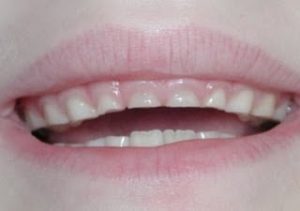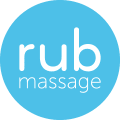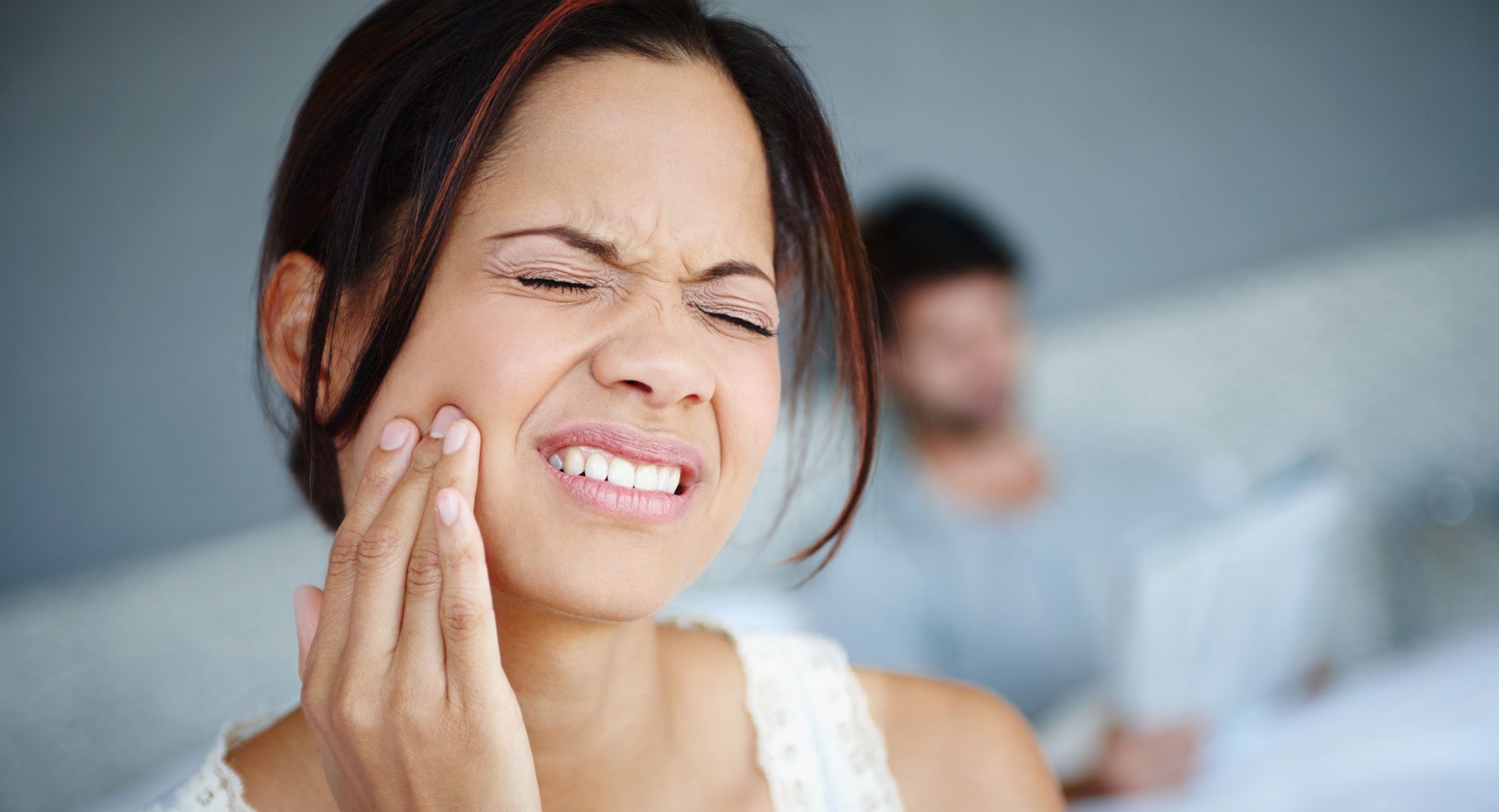Why Coronavirus may have caused your jaw clenching?
Jaw clenching, otherwise known as teeth grinding or bruxism is a condition characterized by grinding, gnashing, and clenching of the teeth.
When done mildly teeth grinding can be harmless. I mean if you have never clenched your jaw, have you ever truly been angry? Where teeth grinding becomes a problem is when it is done in excessive amounts. Some people grind teeth to a point where the top layer starts to wear off.
Teeth grinding occurs in about 20% of the population and affects more women than men. (about 1 in 5 of our clients at Rub Massage). Even though it may seem like a simple problem compared to much more complex human conditions, many aspects of teeth grinding are still not well understood. Its actual cause is especially not well understood and this makes it difficult to develop an effective solution.
Not all hope is lost though. We like to see the glass half full right!?
There are some therapies that can help reduce one’s tendency to grind their teeth. Sometimes the condition can even disappear completely.
To help it disappear it helps to understand it better….
Types of jaw clenching
There are two main types of jaw clenching; awake and sleep jaw clenching. Just like the names suggest, awake teeth grinding is done while awake whereas sleep teeth grinding is done while asleep.
In awake jaw clenching, symptoms such as muscle tightness in the jaw tend to be more pronounced in the evening while the reverse is true for sleep jaw clenching. The causes of awake jaw clenching are usually easier to determine since the patient is more aware of their jaw clenching habit. Sleep jaw clenching on the other hand, is more difficult to deal with.
What causes teeth grinding?

The definite cause of teeth grinding is not well understood.
Genes may play a slight role in determining if one grinds their teeth. If your parents grind their teeth or have a history of grinding their teeth, you have a higher risk of grinding your teeth as well.
It is generally believed that teeth grinding arises due to a combination of risk factors.
Signs and symptoms of teeth grinding
- Constant grinding of the teeth. The grinding is sometimes loud enough to be heard by you or someone close to you.
- Your teeth may start to flatten due to the wear from the constant grinding
- Chipped or fractured teeth
- Increased sensitivity in your teeth. You may start to feel pain in your teeth.
- Tightness in the jaw & neck pain
- Headaches or migraines
- Insomnia. People who grind their teeth may lose sleep either due to the pain or the act of grinding itself keeping them awake.
Risk factors of teeth grinding
- Age. young children are more likely to grind their teeth. The grinding usually reduces as they grow but can still persist into adulthood.
- Genetics. People whose parents or other relatives grind their teeth are more likely to grind their teeth
- Smoking and use of psychoactive drugs like cannabis
- Medications. Medications, particularly those that are psychoactive like antidepressants sometimes cause teeth grinding as a side effect.
- Other diseases and conditions. Mental health conditions like Parkinson’s, dementia, and Alzheimer’s usually cause teeth grinding.
When to seek treatment for teeth grinding
Since teeth grinding can feel like a normal habit, it may be difficult to determine when it is getting serious. For this reason, it is encouraged to seek professional help as soon as you feel like you cannot control the habit. Seeing a doctor early enough can help you get to the root cause of the teeth grinding before it worsens.
If for example you are stressed, seeing a therapist in time can help you reduce your stress. This may resolve your teeth grinding before it turns into something serious.
Waiting for signs and symptoms to see a doctor is not advised. Signs and symptoms like wearing of the teeth take years to appear. If you are to wait for them, your teeth grinding will be in its late stages by the time you start treatment.
Complications of teeth grinding
If left unchecked, teeth grinding can result in more complex conditions. Complications from teeth grinding take years to develop but once they do, they can have a very negative impact on one’s quality of life. Some of the complications that can arise from teeth grinding include:
- Extreme wear and damage to the teeth
- Tension headaches
- Temporomandibular dysfunction
- Facial pain

Wear of the teeth caused by teeth grinding
Temporomandibular dysfunction (TMJD)
 TMJD is one of the most common effects of teeth grinding.
TMJD is one of the most common effects of teeth grinding.
The TMJ, temporomandibular joint in full, is the joint that joins the temporal bone to the mandible (lower jaw). There is one TMJ on each side of the face.
TMJD usually resolves in most people after treatment but may persist in others. If TMJ pain is left unchecked or persists, surgery may be required.
Other than teeth grinding, some of the other common causes of TMJ pain include
- Jaw Clenching
- Arthritis
- Injury to the jaw
- Chronic stress
- Excessive chewing
Signs and symptoms of a tight jaw
- Pain around the jaw area. The pain tends to be more pronounced when you try to move your jaw for example when you are chewing
- Limited range of motion of the jaw. In advanced stages, it can result in lockjaw, a condition where the jaw gets locked in one place. One may not be able to speak clearly or brush.
- Headaches or migraines. You may feel a throbbing pain at the base of the skull and/or the temples.
- Clicky sounds when you open or close the jaw.
A tight jaw can cause you intense pain in the jaw area
Why the coronavirus pandemic may have started or worsened your tight jaw?
COVID-19! Where to start. It is safe to say that we have all wielded some type of stress from this unfortunate pandemic. From lost jobs, homeschooling, working from home, and worst of all, losing loved ones, this pandemic has touched us all in some way. Even if you are lucky enough to not have experienced any of the above, being locked in the house 24 hours a day can take its toll on anyone.
Remember, we cited stress as a cause for a tight jaw. Not only has the pandemic brought us stress, many of us have also acquired anxiety, frustration, and depression. Pair this with the loneliness and a socially negative environment, you have the ultimate recipe for one tight jaw.
The effects of the pandemic are going to be with us for a long time. Most of these like the economy, you cannot control, but what you can control is….. A tight jaw.
If your jaw has not been feeling right or normal, you are not alone. This study done in Israel found that teeth grinding and TMJD have increased since the pandemic started. This may feel like another thing to be frustrated about and rightfully so. However, a tight jaw can be resolved. Quite easily, might I say.
Self-treatment and management of a tight jaw
While the feeling of a tight jaw can be unpleasant, you should not worry too much about it. A tight jaw can easily be resolved in the comfort of your home. In the early stages, you may not need medication or a professional to heal your jaw. By utilizing these simple methods, you can unlock your jaw in no time:
- Jaw exercises. By simply opening and closing your mouth repetitively, you can loosen your jaw at home. The key to success is to choose exercises that your jaw can handle at the moment.
- Heat packs. Applying some warmth to your jaw can improve blood flow which is always important for any healing process.
- Stretches. These are similar to exercises except they are more gentle and controlled.
Alternative treatment for tight jaw
Self-management is great. It’s free, gives you control of the process, and did I mention that it’s free?
My experience has shown me that only about 10-15% of people tend to stick at their self care routines without the guidance of a professional (eg. Physio, Massage Therapist etc)
Sometimes we just cannot create the habit ourselves. No matter how simple. If you have tried to manage your tight jaw at home but you are not seeing any progress, you can always try alternative options like:
- Pain killers. If the pain is unbearable, you can use some painkillers. Of course, ask your doctor before you start to use any medication for your jaw.
- Botox injections – has been know to help (not my personal recomendation)
- Other types of medication like muscle relaxers
- Dry Needling or Acupuncture
- Remedial Massage therapy
Remedial massage therapy for a tight jaw
 Remedial massage therapy has worked for so many in reversing their tight jaws. There are countless techniques that can be applied to your jaw during a massage to loosen it up. Some of the most effective massage techniques for a tight jaw include:
Remedial massage therapy has worked for so many in reversing their tight jaws. There are countless techniques that can be applied to your jaw during a massage to loosen it up. Some of the most effective massage techniques for a tight jaw include:
- Dry Needling
- Cupping
- Hot stones,
- Deep tissue massage,
- Self Care Muscle Energy Technique (MET). Explained here by Paul.
- Intra Oral trigger point therapy. The therapist, with a gloved hand, uses their little finger to access the medial and lateral pterygoid muscle on the inside of your mouth. The goal is to find your trigger points and apply pressure to them to release some of the tension in your jaw. Check this video by paul for more info:
In conclusion, a tight jaw while frustratingly uncomfortable, can be resolved. You can manage a tight jaw on your own at home. However, seeing a professional will help you move the process along faster. Even if you plan on using self-management, consulting a qualified massage therapist can make a big difference in how fast you recover. If self management does not work for you, give remedial massage therapy a chance. You will not regret it.

